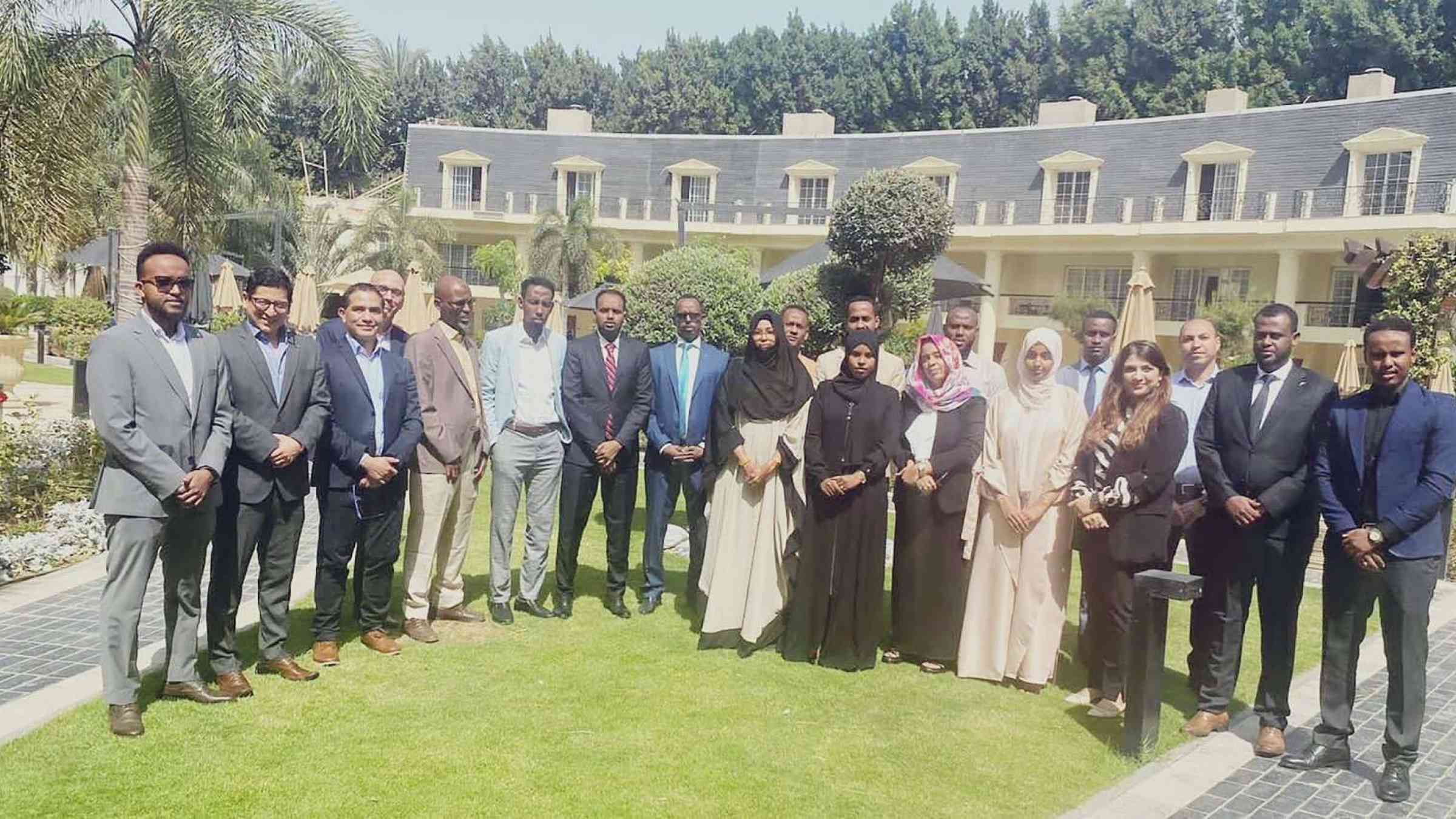Building resilience through enhanced risk assessment and modelling in Somalia

23-25 May 2023 – In accordance with UNDRR Regional Office for Arab States concerted effort to enhance disaster risk management in Somalia, a comprehensive Training Workshop on Probabilistic Risk Assessment and Systemic Risk Modelling was conducted in Cairo, Egypt. The workshop aimed to strengthen the country's capacity to analyze interconnected and systemic risks, covering critical sectors such as housing, infrastructure, health, labor, energy, and water. Organized by the UNDRR ROAS, the workshop brought together representatives from various ministries, departments, and local authorities in Somalia.
Present-day disaster risk management requires a holistic and integrated approach that allows national authorities and stakeholders to assess and manage risks effectively. However, despite global technological advancements in generating risk information, many countries face challenges in making this information accessible and usable for decision-makers. This workshop aimed to address this issue in Somalia by sharing practical methods and tools, enabling participants to understand the systemic nature of risk and make informed decisions in the face of complex challenges.
“By mapping and measuring multi-hazard and interconnected risks, we can contribute to effective disaster risk management and ensure the resilience of the country on the national and local level,” said Saira Ahmed, Programme Management Officer, UNDRR ROAS in her opening remarks.
One of the key focuses of the workshop was the emerging field of systemic risk assessment. While examples of this practice are scarce in developing countries, Somalia has taken proactive steps to improve its systemic risk knowledge and assessment capabilities. Representatives from the National Disaster Management Organization, Ministry of Planning, Ministries of Agriculture, Infrastructure, Labor, Transportation, Energy, Statistics, national research organizations, think tanks, and non-governmental organizations participated in the workshop, contributing to a collaborative and comprehensive approach.
The objectives of the workshop were twofold. First, participants were introduced to methodologies and tools for probabilistic and systemic risk assessment, enabling them to estimate systemic risk caused by cascading and compound hazards. Second, the workshop provided an invaluable opportunity for knowledge and experience sharing, allowing participants to gain insights into the current state of risk understanding and action in Somalia. Additionally, policy and sectoral capacities were highlighted, along with opportunities for enhancement.
Over 3 days, the workshop fostered an understanding of the application of Probabilistic Risk Assessment and Computable General Equilibrium (CGE) models for the estimation of systemic risk and the application of Systemic Risk Assessment for country-driven planning processes.
Participants were drawn from a diverse range of ministries, departments, and agencies involved in disaster risk management, disaster risk reduction, local and urban planning, finance, statistics institutions, and sector planning. Their active engagement and collective commitment exemplify Somalia's determination to build a comprehensive and integrated approach to disaster risk management.
The Training Workshop on Probabilistic Risk Assessment and Systemic Risk Modelling for Somalia marks a significant step forward in fortifying the country's resilience to recurrent shocks. By equipping participants with the necessary knowledge and tools, this workshop sets the stage for informed decision-making, improved risk analysis, and effective planning.
The UNDRR programme in Somalia aims to improve the governance and understanding of risks, and the capacity to address disaster risks at national and local levels to better prepare for and respond to disasters and reduce vulnerabilities, loss of life, and economic damages.